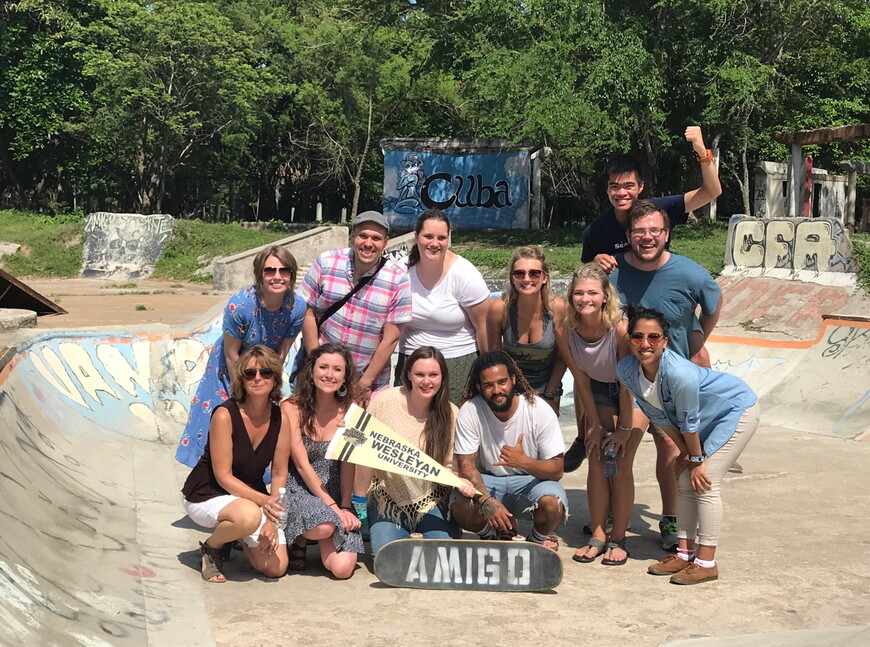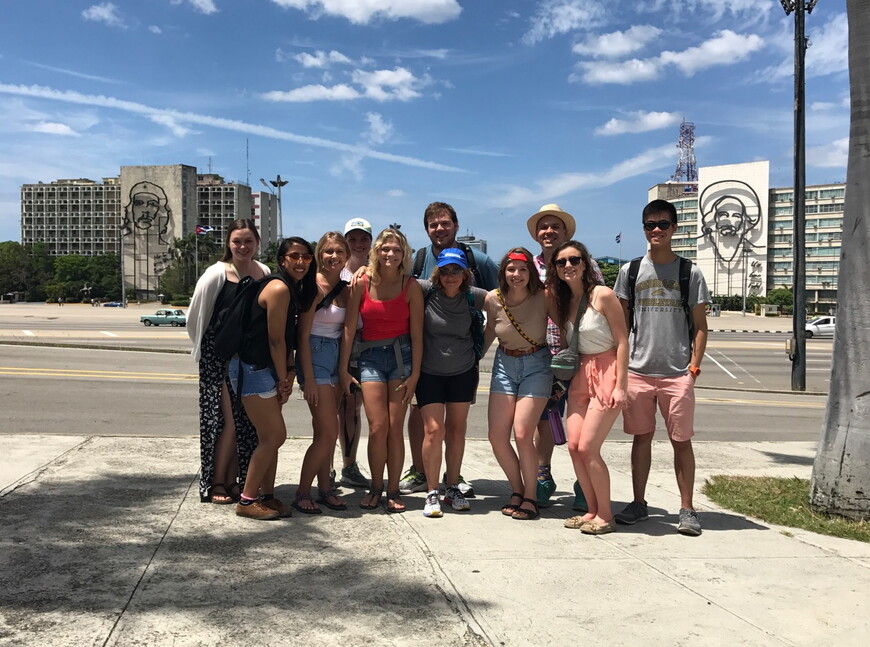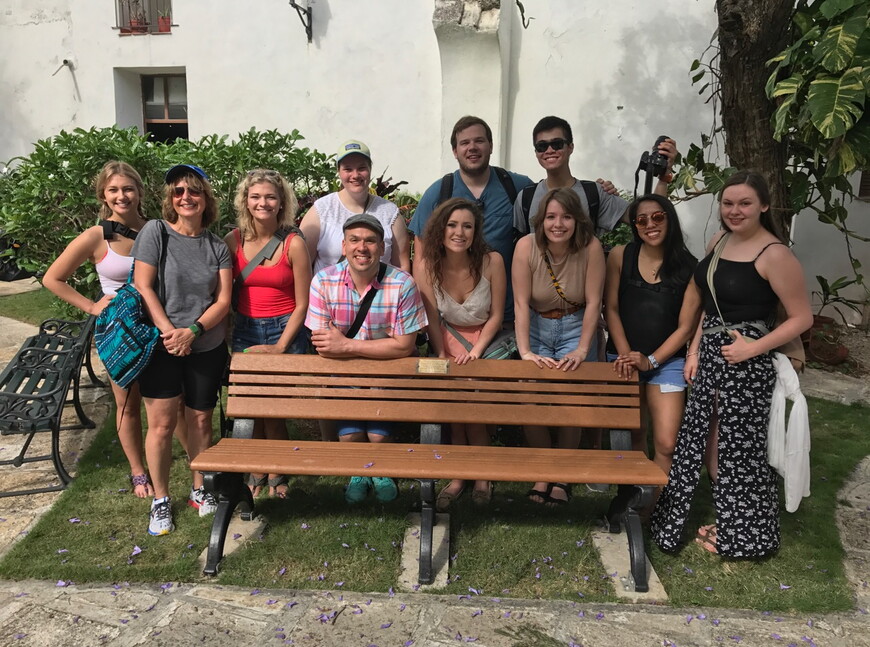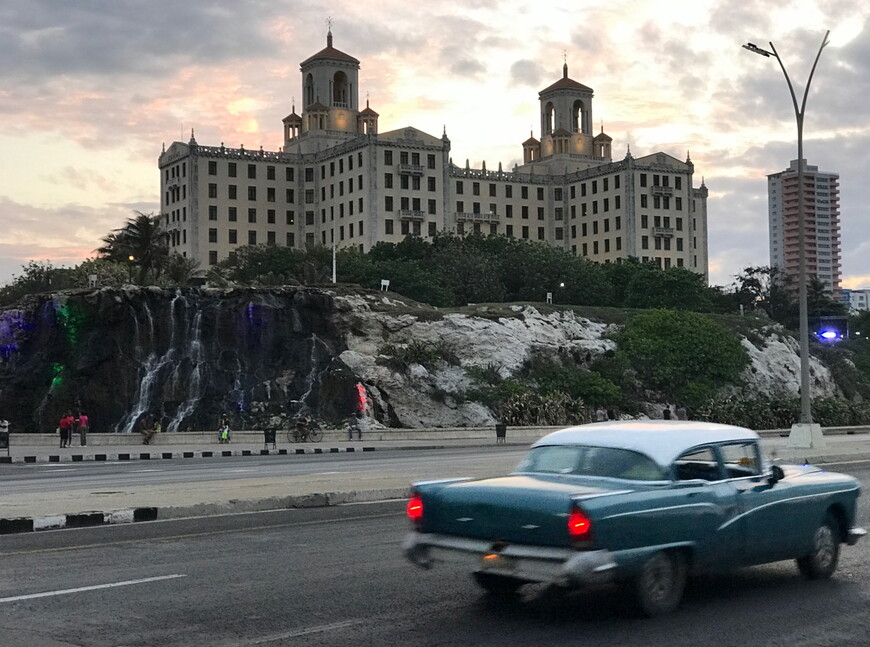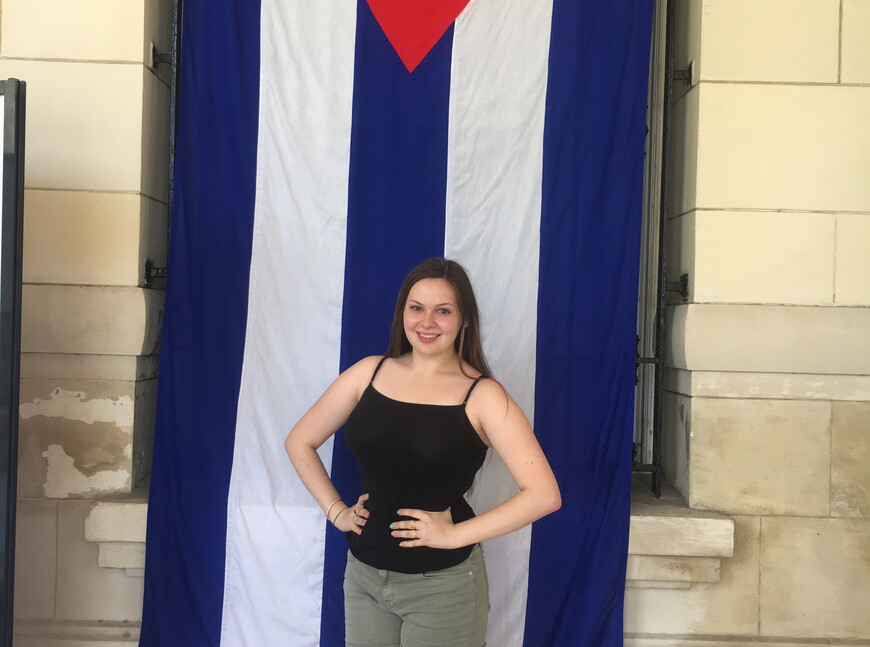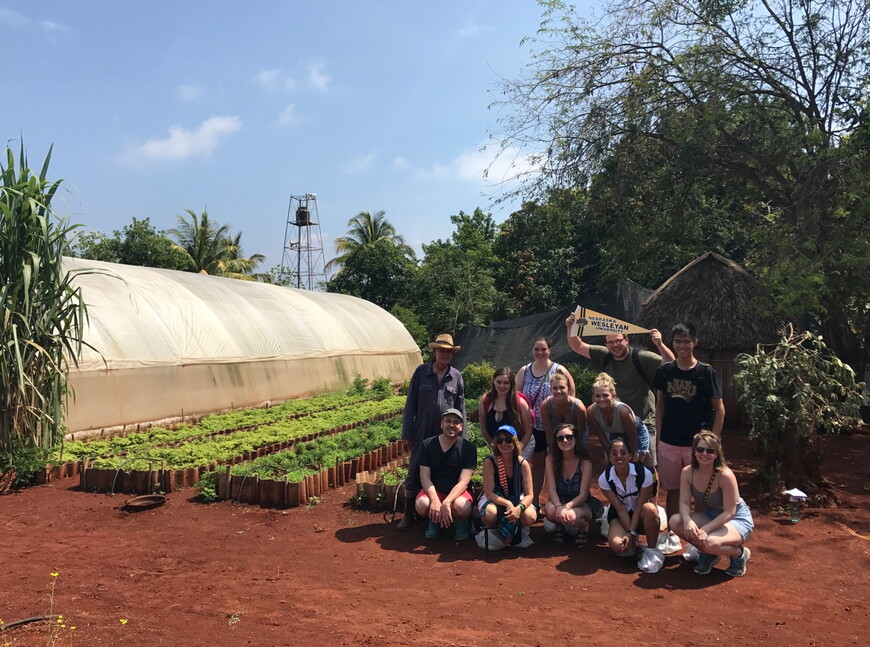Last year Sarah Dyer enrolled in a course called “Cuban Youth Music Culture.”
For the music and gender studies major, the course would provide an exciting opportunity to learn more about contemporary Cuba. The course concluded with a 10-day trip to Cuba to completely immerse herself and connect her classroom lessons in person.
“It was so special to be able to do the research for myself and draw connections between the lectures, speakers, and my own research,” said Dyer. “When I came back from Cuba and saw my completed field notes, I was amazed at the connections and everything that I had learned in the short time that I was there.”
Students and faculty traveled to Havana and Santa Clara where they used participant-observation fieldwork to study Cuban youth culture with an emphasis on music and dance. They attended lectures from professors at the Centro De Estudios Martianos. They toured a historical fortress system, a youth music organization called Asociación Hermanos Saíz, and met with a music video editor.
An important piece of their immersion was the opportunity to stay with host families.
“This allowed us to experience being in Cuban homes, eating Cuban food from families, and it gave us the opportunity to learn more about Cuban daily life,” said sociology professor Sue Wortmann.
“This genuine hospitality is provided in a context of scarcity,” Wortmann added. “Everyday life is really difficult for the average Cuban—most have lost family members to emigration, most families survive on less than $50 a month in salaried wages, which are paid in devalued currency, transportation is very crowded, food shortages are common, and living spaces are often very crowded with multi-generational families.”
For CeCe Hastreiter, is was her first time traveling abroad.
“I learned how to better communicate with others. Because of the language barrier, I had to be very attentive. This made me a better listener and a more engaged and animated person,” said the junior music performance major. “I gained more confidence and independence because I had to navigate a new and unfamiliar area with a few friends.”
For music and gender studies professor John Spilker, the experience will continue to impact other NWU students enrolled in his classes. Wortmann also plans to incorporate the experiences into her sociology classes.
And they’re hopeful more NWU students will get the opportunity to travel to Cuba with plans to return in 2019 to mark the 500th anniversary of the founding of Cuba by colonists.
“What a historic moment to visit a country that has been historically closed to U.S. citizens, by U.S. decree, and learn about Cuba’s vibrant culture, which includes a thriving youth scene,” said Spilker.
For Dyer, who’s beginning her junior year, that opportunity can’t come soon enough.
“I hope to go back and continue my research and gain a new perspective on this extraordinary youth and music culture,” she said.
###
Story by Emmalie Harris, public relations intern.













